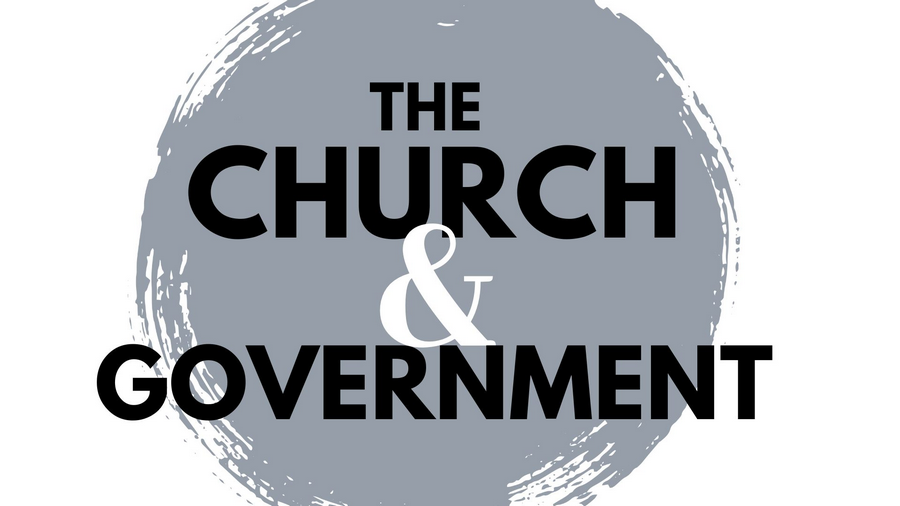For many people around the world, 2020 was an unprecedentedly challenging year, so much so that even the term “2020” has become synonymous with chaos or craziness. As many, if not all, Christians continue to feel the devastating effects of all that took place that year — especially as tensions between the church and the government continue to rise across America — there has also been a sudden increase in discussions over Romans 13, among other related passages.
Though this is technically nothing new, and much ink has been spilled over Romans 13 through the centuries, it is this seemingly newly found interest in the text among many Christians today that has compelled me to better understand this passage for myself as I study and meditate on it. Though I do not intend to dive into the various interpretations of Romans 13 at this time, my aim so far has been to simply go through the text verse by verse and explain its meaning in light of the context.
Whether it is a speed limit sign, a police officer pointing his radar gun at vehicles as they pass by, or a mandate as a result of the COVID-19 pandemic, one does not have to look far to be reminded that there are governing authorities that have various measures of power over their citizenry, both federally and locally. With them, we are subject to their laws and regulations which we may or may not agree with; without them, however, our entire society would devolve into outright anarchy. History tells us that this has been consistent across all civilizations all over the world. Why is this so? Why is it that entire societies have always been consistently dependent on some form of government to maintain law and order?
According to the consistent testimony of Scripture, the reason is simple: God put the governing authorities in place, and He gave them their authority. When Pilate said to Jesus while on trial that he had the authority to crucify or release Him, Jesus simply responded by saying, “You would have no authority over Me, unless it had been given you from above” (John 19:11). The apostle Paul, when addressing the Areopagus, said, “He made from one man every nation of mankind to live on the face of the earth, having determined their appointed times and the boundaries of their habitation” (Acts 17:26). From these examples, among many others we find in the Bible, we are able to come to one irrefutable conclusion: having a governing authority over us is a good thing because it comes from God. Human beings are sinful by nature, and we therefore need a divinely-appointed institution that has been granted the authority to restrain evil in a society. Mankind, even in its fallenness, has recognized that civilizations function better with a government than without one.
While it is evident that God is the one who sovereignly ordains the governing authorities and gives them their authority, how does the church fit in this equation? What role do we as the Body of Christ play in relation to the government? When Paul wrote that Christ is our head (i.e. 1 Corinthians 11:3, Ephesians 5:23, Colossians 1:18, etc.), does that mean that Christ alone is our authority, and we are therefore exempt from submitting to human magistrates? In Romans 13:1-7, a text we will be taking a closer look at throughout this series, Paul answers that question with a resounding “no.” In fact, the apostle had much to say regarding the relationship between the church and the government, and penned these remarkable words nearly 2000 years ago:
“Every person is to be in subjection to the governing authorities. For there is no authority except from God, and those which exist are established by God. Therefore whoever resists authority has opposed the ordinance of God; and they who have opposed will receive condemnation upon themselves. For rulers are not a cause of fear for good behavior, but for evil. Do you want to have no fear of authority? Do what is good and you will have praise from the same; for it is a minister of God to you for good. But if you do what is evil, be afraid; for it does not bear the sword for nothing; for it is a minister of God, an avenger who brings wrath on the one who practices evil. Therefore it is necessary to be in subjection, not only because of wrath, but also for conscience’ sake. For because of this you also pay taxes, for rulers are servants of God, devoting themselves to this very thing. Render to all what is due them: tax to whom tax is due; custom to whom custom; fear to whom fear; honor to whom honor” (Romans 13:1-7, emphasis added).
Before going further in depth about this passage, let us consider the overall context. In the first 12 chapters of Romans, Paul presents a compelling case for the doctrine of justification by faith alone in Christ alone. He explains the need to be justified by God because of our sinful nature with a disposition towards hating God, as well as the many blessings — including our blessed assurance — that come as a result of being justified by faith and no longer being enemies of our Creator. Starting in chapter 12, Paul then expounds on the implications of our daily lives as believers, having been justified in the sight of God and being in Christ, going so far as to instruct us to “if possible, so far as it depends on you, be at peace with all men” (Romans 12:18). This is key to understanding the opening verses of Romans 13 because it is with this peaceful mindset and attitude that we are to actively submit to our governing authorities. As Christians, we are the peacemaking people, not the troublemaking people, and this Christlike behavior should characterize our daily lives not only in our relationships with the people in our innermost circles but also in our role as citizens.
As a matter of fact, it is precisely the troublemaking people whom Paul warns about in verse 2 of Romans 13. God takes the human governments He establishes seriously, so much so that to resist magistral authority is to rebel against God Himself. This has deep implications when we really ponder this truth. Did you blatantly run that red light? Then you have resisted the authority that God put in place. Are you cheating on your income tax? Then you are disobeying not only the government but also God, who instructed us to “render to Caesar the things that are Caesar’s” (Mark 12:17a). When people get caught disobeying the government and are tried and convicted for their crimes, they are reaping the punishment they have deserved. We should therefore be wary of the mentality that says, “I don’t care what the government says. They cannot tell me what to do,” because they can and God has established them to ensure that they do.
As we will read in next week’s blog, the governing authorities God has put in place serve a vital purpose of restraining evil for the societies at large, and we will be looking at what kind of power the government is granted in order to do just that.

